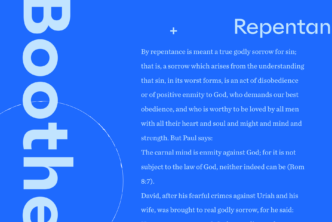Today’s guest post is by Dr. Warren Gage, professor of Old Testament and senior advisor to the president at Knox Theological Seminary. Dr. Gage is joining us to talk about about his upcoming Doctor of Ministry class, The Art of Exegetical Theology in Preaching, a five-day intensive course held in Fort Lauderdale, FL. Apply for your DMin from Knox, learn using Logos, and study under Dr. Gage this June!
There was a special power in the ministries of Jesus, John the Baptist, Paul, and John the Beloved—one that needs a new awakening. The gospel preacher should understand that a large part of his or her calling is to be a “friend of the Bridegroom.”
Jesus explicitly understood himself as a bridegroom, a fact attested to by his wedding parables (Matt. 22:1–14, 25:1–13). John the Baptist’s astonishing ministry was preparing a repentant and cleansed people as a bride for Jesus (John 3:29–30). Paul’s great ministry was, likewise, consciously framed by his gospel purpose stated to the Corinthians, a church beset with issues of moral purity: “For I feel a divine jealousy for you, since I betrothed you to one husband, to present you as a pure virgin to Christ.” (2 Cor. 11:2, see also Eph. 5:22–33). Likewise, John the Beloved spoke in the most sublime poetry of the consummating vision of the bride of the Lamb descending from heaven, arrayed like a bride made ready for her groom (Rev. 21:1–4).
The bride of the Lamb
It is this destiny of the people of God—the fact that they have been chosen to be betrothed to the Lamb of Glory—that can transform the vision of the pastoral role and infuse the preaching role of the minister with great power. We pastors need the imagination to realize that worldly impurity can be transformed by Christ’s love into heavenly virginity. If God can bring forth life from death, why should it seem impossible for God to transform an impure people into the Lamb’s virgin bride?
This class is based on the theory that, if Christ is foreseen in the prophets and patriarchs of the Old Testament, surely their brides would likewise foresee the church, the bride of the Lamb.
It is centered on the forthcoming text entitled The Romance of Redemption: Biblical Types of the Bride of Christ.
The voice of the Bridegroom
This course explores the redemptive message of the Bible as story. It teaches us about heaven’s Bridegroom, who came to slay the great, red dragon, all to rescue his beloved and take her to the palace of his Father, the King. It teaches us to preach the message of the Bible as a wooing of the beloved, the church of all the ages. It teaches us, with John the Baptist, to hear the voice of the Bridegroom, and so to rejoice! (John 3:29)
If we look at the story of the Bible from this literary point of view, it is clear that the Bible is the story of a heavenly romance. Genesis begins with the account of a wedding. There is a bride (Eve) and a bridegroom (Adam) in a garden paradise. After a great expanse of time, the Bible ends in Revelation with the story of another wedding. Once again there is a bride (the community of faith) and a Bridegroom (Jesus) in a garden paradise. But now there is no serpent. There is nothing to disturb the everlasting bliss of the Bridegroom and his bride. We can thus understand why the ancient prophet comforted Israel with her nuptial hope: “as the bridegroom rejoices over the bride, so shall your God rejoice over you” (Isa. 62:5)!
* * *
Learn more about the Knox Doctor of Ministry program, and apply now to join Dr. Gage in Florida this June.





